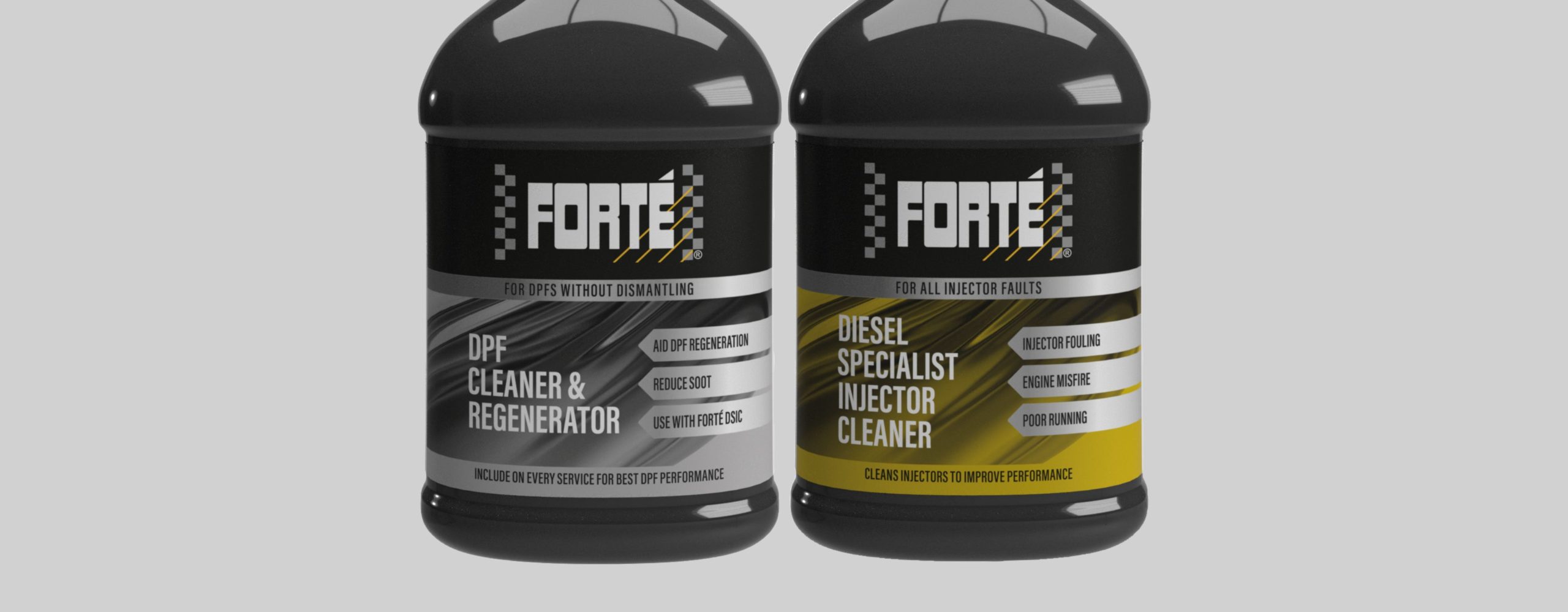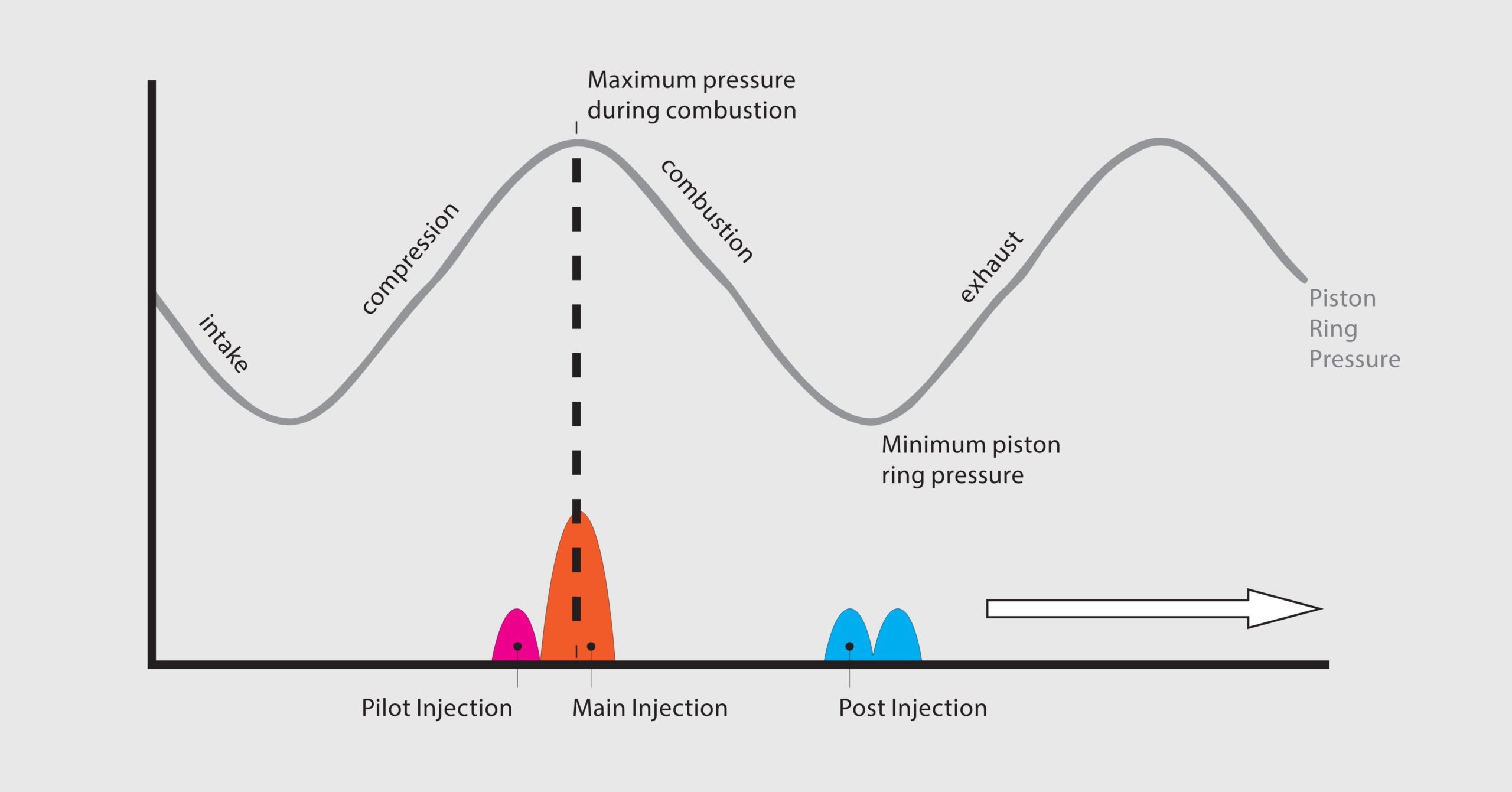Forté Technical Tips – What prevents DPF regeneration?
When it comes to diesel particulate filter issues there are several factors that can prevent or hinder DPF regeneration. Join us as we take a closer look at the causes and prevention of diesel particulate filter (DPF) regeneration.
What is DPF regeneration?
Put simply, this is the process by which the DPF burns off accumulated soot. When DPF regeneration is inhibited, it can lead to filter blockage, reduced engine performance, and potential engine damage.
Here are some key factors that can prevent DPF regeneration…
- Short, frequent trips – DPF Active regeneration requires the exhaust temperature to reach a certain level (typically around 600°C) to burn off the soot. Short trips, especially in urban driving, may not allow the exhaust to reach or maintain this temperature. Incomplete regeneration leads to soot buildup in the DPF, causing diesel particulate filter issues.
- Faulty engine components – Problems with components such as fuel injectors, the exhaust gas recirculation (EGR) valve, or the turbocharger can lead to a variety of diesel particulate filter issues, including; incomplete combustion, increased soot production, and lower exhaust temperatures. Physical damage within the DPF itself, such as cracks or leaks, can prevent the regeneration process from occurring properly.
- Faulty sensors – The DPF relies on various sensors, including exhaust temperature sensors and differential pressure sensors, to monitor when regeneration is needed. If these sensors malfunction, the regeneration process may not be triggered. The DPF remains clogged, increasing back pressure and reducing engine efficiency.
- Additive depletion (in some vehicles) – Some diesel engines use a special additive (e.g., Eolys fluid) to lower the combustion temperature of soot, aiding regeneration. If the additive is depleted and not replenished, regeneration may not occur effectively.
- Using incorrect oil – Using engine oil that is not low in sulphated ash, phosphorus, and sulphur (low-SAPS) can contribute to ash accumulation in the DPF, which is not burned off during regeneration, thus causing diesel particulate filter issues. This non-combustible ash can clog the DPF and prevent effective regeneration.
Other things you might not know about DPF regeneration
Contaminated injectors prevent regeneration
When an injector is contaminated and the spray pattern is poor this leads to incomplete combustion. Incomplete combustion lowers the exhaust gas temperature and the system can not create the temperature required to burn off the soot. This in turn can also lead to an increase in oil dilution.
A sticking EGR valve can prevent regeneration
The EGR valve should be closed during regeneration. If the valve is contaminated and can not close fully then this will prevent regeneration.
A blocked intercooler prevents regeneration
A reduction of airflow through the intercooler will raise the air intake temperature.
If the air conditioning system is not working will regeneration take place
Not in some vehicles, during regen some systems will operate the air conditioning to load the engine and increase temperature
A broken door mirror prevents regeneration
Some manufacturers house the outside air temperature sensor in the door mirror housing. If the door mirror is damaged the sensor can be broken. Always check the dash for an outside air temperature reading when working on a DPF.

The importance of keeping the DPF clean – The Forté solution
Regularly keeping the fuel system clean will reduce soot content in the exhaust gas, prolong the sensor operation, and prevent clogging of the DPF.
Use Forté DPF Clean & Regen (twin pack) at each service interval, or if a problem occurs. This will reduce the soot burn temperature, making regeneration quicker and more efficient.
We also recommend adding Forté Diesel Specialist Injector Cleaner, used to remove internal and external injector deposits and ensure injector cleanliness, restore spray pattern and combustion efficiency. Alongside Forté DPF Cleaner and Regenerator to the fuel tank, simultaneously, to maintain injector and DPF cleanliness.
We hope this article has helped you better understand how to prevent diesel particulate filter issues and regeneration. For more on this topic, or if you have a query about our products, please get in touch with us.
If you’re looking for more information on choosing the right DPF cleaning solution, read our blog here.

